Diarrhea herbs and natural remedies
Three steps to stop diarrhea:
- Stay hydrated! Drink plenty of uncontaminated water.
- Flush toxins and shrink tissue by drinking lots of herbal tea.
- Heal the digestive tract by consuming mucilaginous herbs like marshmallow.
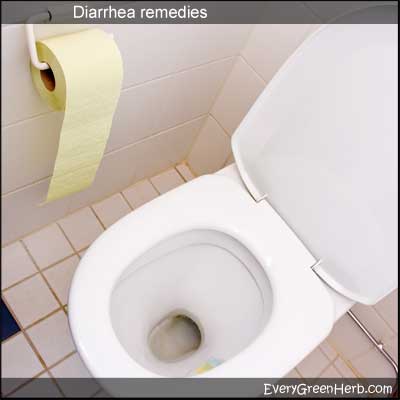
Yellowroot is used in the treatment of diarrhea.
The go-to-herb for old-timers in the Appalachian mountains, the natural antibiotic known as yellowroot is still popular with healers and herbalists as a home remedy for diarrhea.
Yellowroot helps the whole digestive tract, all the way down from the mouth and throat to the colon, intestines, and urinary system.
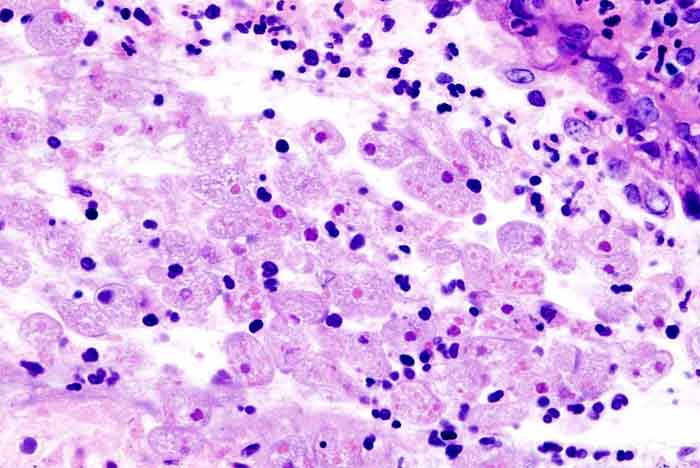
What is the difference between diarrhea and dysentery?
They have many of the same symptoms. Diarrhea is the name for lose stools and is caused by everything from a change in diet to food poisoning.
Dysentery is caused by an amoeba that lives in contaminated water. People infected with dysentery can experience life-threatening bloody diarrhea, fever, and low energy levels.
Dysentery may require IV fluids and antibiotics.
Diarrhea that is not caused by dysentery amoeba usually stops without prescription medicine or hospital visits.
Diarrhea can be mild or severe. It causes loss of body fluids that can lead to dehydration and even death. Statistics show that diarrhea and dysentery are the second leading cause of death among children under the age of five.
Diarrhea, dysentery, and cholera cause health problems all over the world including the United States Mild cases can be treated with a variety of home remedies. Herbs can help stop diarrhea in children and adults and are usually just as effective as over-the-counter medicines.
Symptoms of diarrhea include uncomfortably frequent, fluid, and excessive bowel movements. Thankfully, herbal teas and tinctures can stop diarrhea within a few hours.
Astringent herbs are useful in the treatment of diarrhea to stop loss of bodily fluids. After diarrhea slows down, switch to healing, gentle herbs like marshmallow. Other remedies may be required depending on the cause of the diarrhea. For severe cases of diarrhea, seek emergency care.
Read more about using herbs to remove toxins and poisons from the body.
What else causes diarrhea?
Diarrhea is caused by an imbalance in the digestive system, perhaps from overgrowth of yeast, virus, bacteria, or other poison.
It may be brought on by lack of fiber in the diet, an enzyme or vitamin A deficiency, intestinal parasites, colitis, a reaction to rancid nuts or oils, eating unripe fruits, food allergies, and Irritable Bowel Syndrome.
Dysentery and cholera
Dysentery is a lot like diarrhea but includes blood and mucus in the stool. It is usually caused by contaminated food or water and is contiguous. There is usually more pain with dysentery than with diarrhea.
Cholera is caused by a bacteria infection and requires prescription medication if at all possible. Symptoms of cholera include diarrhea, vomiting, nausea, dehydration, leg cramps, seizures, and shock. If cholera is not treated, it can lead to death.
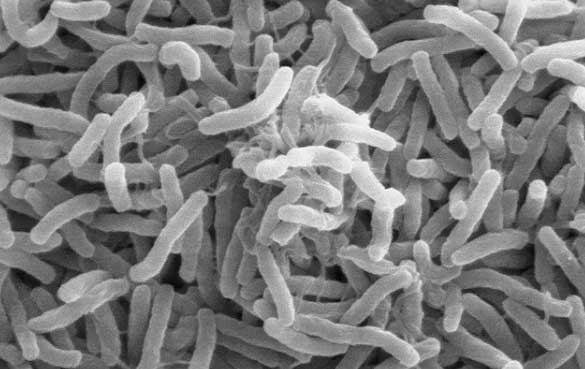
For now I am writing about moderate to light cases of diarrhea that most people experience from time to time. Herbal medicine and natural remedies can really help in these instances.
Stop diarrhea with astringent herbs.
There are many astringent herbs that help stop diarrhea. Astringents contain tannins that tighten and contract human tissue. The result is fluid retention that can quickly halt diarrhea and reduce any bleeding.
Yellowroot, agrimony, bayberry, comfrey, kudzu root, peppermint, slippery elm, nettle, white oak, white willow, black walnut, blackberry leaf, raspberry leaf, bilberry, Oregon grape, and mullein are all astringent and excellent for treating diarrhea, dysentery, and even cholera.
Unsweetened English breakfast tea and green tea can also be used to treat diarrhea with excellent results. Herbs may be used in tea or tincture forms.
Diarrhea causes dehydration.
Diarrhea is a way for the body to rapidly remove toxins, but it can cause severe dehydration and loss of nutrients. Since it may be best to let mild diarrhea run its course for a couple of days, patients should drink plenty of water during bouts of diarrhea to guard against dehydration.
Soothing herbs like chamomile, catnip, or fennel herbal teas are excellent drinks to sip on throughout the healing process. Meals should be small and frequent.
Chamomile is a good herb for stopping diarrhea.
Chamomile works to calm the whole system. It eases digestive spasms and fights inflammation. Sip hot chamomile tea throughout the day. Sweeten tea with a little bit of honey which can also help heal the bowels. Read more about the healing properties of chamomile.
Other home remedies for diarrhea
Dried and fresh berries (blackberry, raspberry, blueberry, and strawberry) are astringent and can help stop diarrhea. The leaves of these berry plants are astringent and can also help. Read more about using blackberries in herbal remedies.
Cinnamon has astringent properties and is readily available in most people's kitchens. Cinnamon can be a lifesaver! Add one teaspoon of powered cinnamon to one cup of boiling water. Steep ten minutes before drinking. Do not take cinnamon if fever is present.
Peppermint tea can also help stop diarrhea.
Try peppermint essential oil to treat diarrhea.
Peppermint essential oil can reduce inflammation and soothe the digestive tract. Peppermint essential oil helps calm intestinal muscles and stops cramping.
Dilute essential oil with a good carrier oil like olive oil and rub on your abdomen. Use gentle circular motions.
Peppermint candy can be an effective remedy since most of it is made with real peppermint extracts. It is safe to take by mouth but don't overdo it! A few drops is all it takes to do the job.
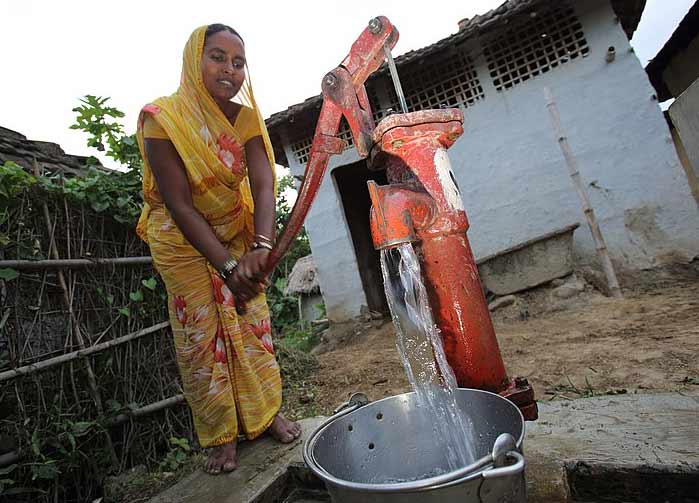
Stopping diarrhea requires having access to uncontaminated water.
The key when treating diarrhea, dysentery, and cholera is to drink plenty of clean water, to avoid consuming any additional harmful microorganisms, to avoid sugar and fruit juices that feed parasites, to reduce absorption of toxins into the body, to transport toxins out of the body, and finally to heal the bowels with mucilaginous herbs like plantain seeds (psyllium).
Access to clean drinking water is the first step in stopping diarrhea and other bowels problems.
Mucilaginous herbs like slippery elm help heal digestive tract.
Mucilaginous herbs soothe and heal damaged parts of the digestive tract. They also carry toxins out of the body without feeding harmful bacteria. Mucilaginous herbs include psyllium, slippery elm, and marshmallow. They should be consumed with large amounts of water.
Okra pods, also considered a mucilaginous herb, should be thoroughly cooked and chewed well when treating diarrhea.
Treat diarrhea with slippery elm balls.
A recipe for slippery elm balls calls for a dough to be made of slippery elm powder and a little honey. Roll into bite sized pieces and dust with more slippery elm powder. Store in a tightly closed container in the refrigerator and eat often as a snack. Slippery elm balls help keep diarrhea away and the digestive system healthy.
Replace lost nutrients with herbal tea.
It is also a good idea to slowly replace lost nutrients like potassium and sodium by drinking plenty of alfalfa, nettle, or red clover tea.
Eat small meals of rice, oatmeal, and bananas.
Other foods that are good when treating diarrhea include whole grain toast, steamed vegetables, and cooked whole grains.
Carrots are especially beneficial when treating diarrhea. Eat a bowl of cooked mashed carrots or carrot soup for best results.
Wine with meals can also help by killing harmful bacteria, but limit yourself to 4 ounces.
Diarrhea can spread germs!
Diarrhea can come on suddenly, and occasionally people have accidents. If someone cannot make it to a toilet in time, be sure to clean up as quickly as possible. Diarrhea (and vomit) can spread germs to others and should be cleaned up quickly with bleach solution.
If diarrhea (or vomit) is on carpet or other fabric, use rubbing alcohol or lots of soap and water. Always wear protective gloves and a mask (if you have one) when cleaning up bodily fluids. Dispose of paper towels and gloves in a trash bag. Tie it up securely and place in trash can as soon as possible to avoid infection.
In moderate to severe cases of diarrhea, seek professional treatment. Use home remedies until you can see your healthcare professional. Try probiotic drinks, yogurt, mint, holy basil, ginger, and black pepper tea if nothing else seems to help.
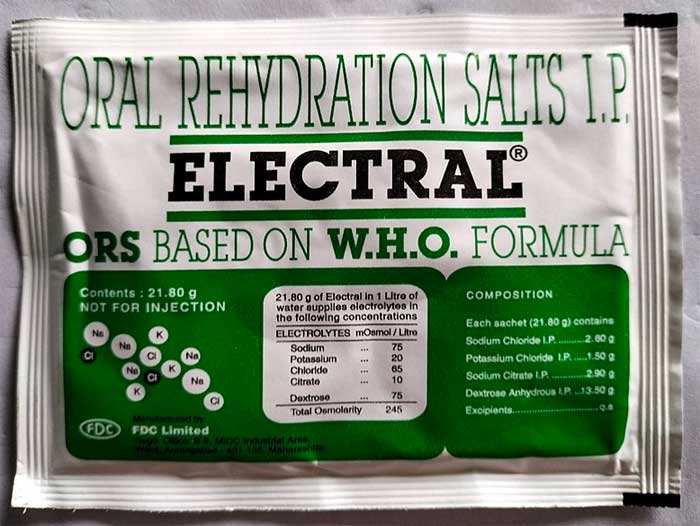
Dehydration can be rapid, so fluid replacement is very important. If you have oral rehydration solution (ORS), start taking it immediately.
Continue to drink ORS at home and during travel to get medical treatment. If you have an infant who has watery diarrhea, continue to breast feed.
Here are tips from the Center for Disease Control to help stop the spread of intestinal disease:
1. Drink and use safe water. Bottled water with unbroken seals and canned/bottled carbonated beverages are safe to drink and use.
Use safe water to brush your teeth, wash and prepare food, and to make ice. Clean food preparation areas and kitchenware with soap and safe water and let dry completely before reuse.
To be sure water is safe to drink and use, boil it or treat it with a chlorine product or household bleach. If boiling, bring your water to a complete boil for at least 1 minute.
To treat your water with chlorine, use a locally available treatment product and follow the instructions. If a chlorine treatment product is not available, you can treat your water with household bleach. Add 8 drops of household bleach for every 1 gallon of water (or 2 drops of household bleach for every 1 liter of water) and wait 30 minutes before drinking.
Always store your treated water in a clean, covered container.
Piped water sources, drinks sold in cups or bags, or ice may not be safe and should be boiled or treated with chlorine.
2. Wash your hands often with soap and safe water.
3. Use latrines or bury your feces (poop); do not defecate in any body of water.
4. Cook food well (especially seafood), keep it covered, eat it hot, and peel all fruits and vegetables.
5. Clean up safely especially in the kitchen and in places where the family bathes and washes clothes.
More natural remedies for treating diarrhea
Diet can help. Drink rice or barley water and eat fresh vegetables like carrots and celery. Clear broths, probiotics, and zinc supplements can also stop diarrhea.
Homeopathy treatments can help stop diarrhea. The most useful are as follows:
- Arsenicum album for foul-smelling diarrhea from food poisoning
- Chamomilla for greenish, frothy stools that smell like rotten eggs
- Calcarea carbonica or sulphur for children that have stools with a sour odor
- Mercurius for diarrhea with streaks of blood
- Podophyllum for diarrhea that worsens after eating
- Veratrum album for watery diarrhea with stomach cramps, bloating, vomiting, exhaustion, and chills.
Read more about keeping the colon healthy with herbs.
*Do not take other essential oils internally without the advice of a healthcare professional. Essential oils are powerful and can do serious harm if not used properly. Always consult with a healthcare professional before using any herbal remedy especially if pregnant, taking prescription medicines, or breastfeeding.
Sources:
https://www.cdc.gov/healthywater/global/diarrhea-burden.html
https://www.mountsinai.org/health-library/condition/diarrhea
Blessings to you and yours!
Thanks so much for reading my blog. Jan.

*Note - the information on this website has not been evaluated by the Food and Drug Administration.
© 2005-2024 website design and content by Janice Boling